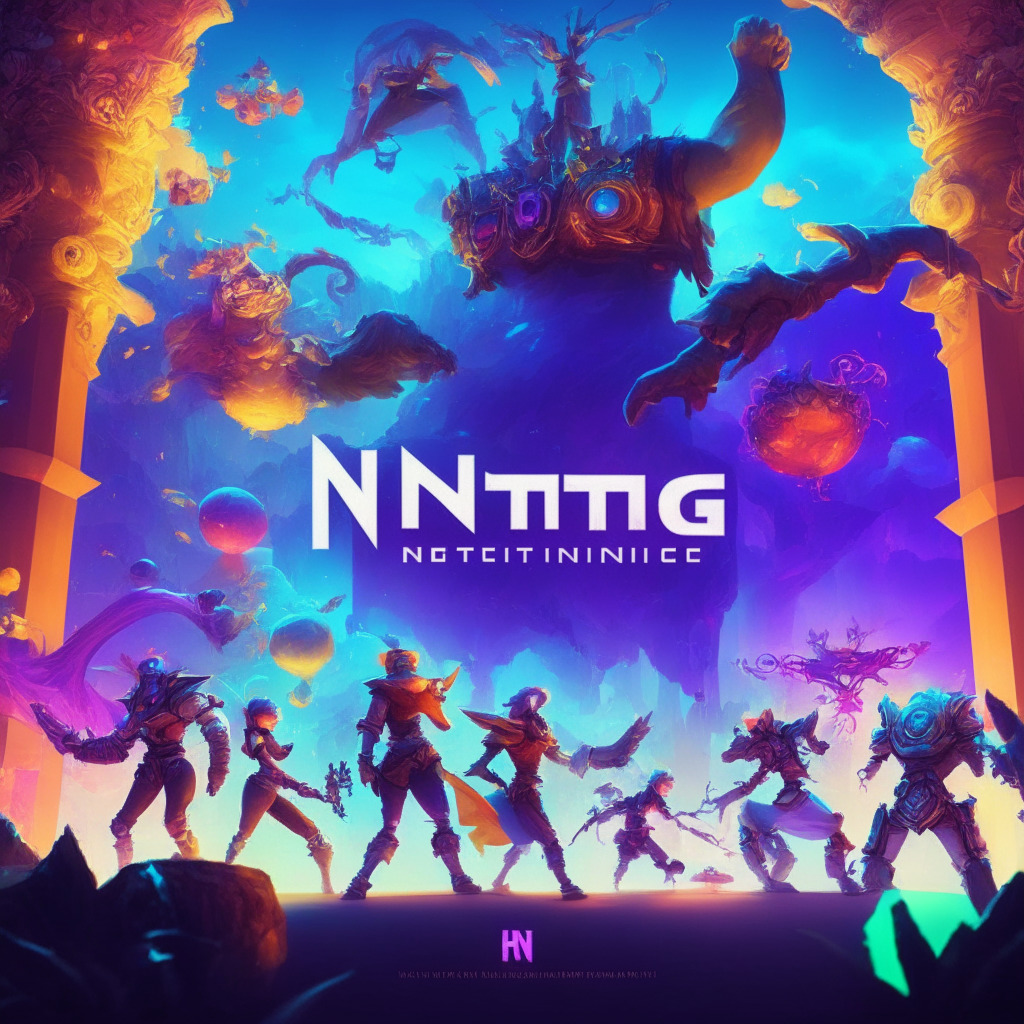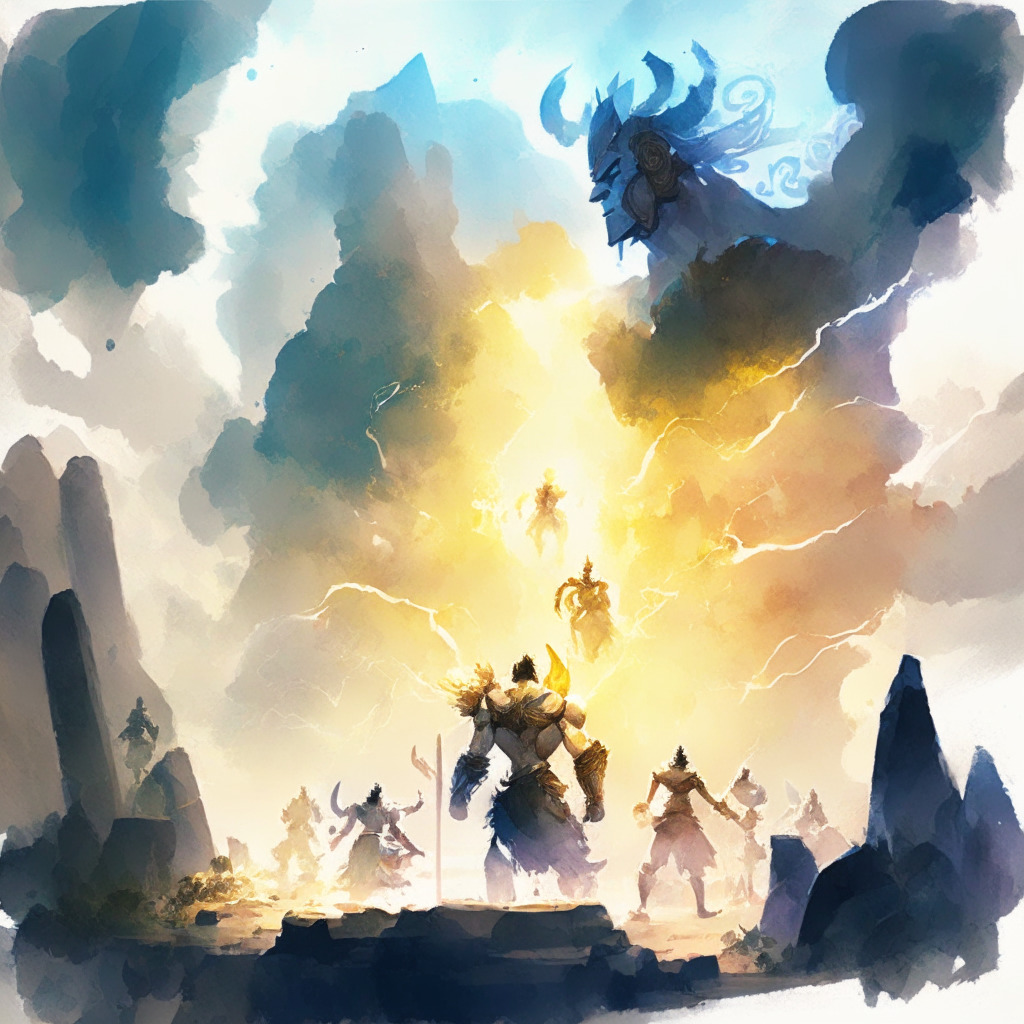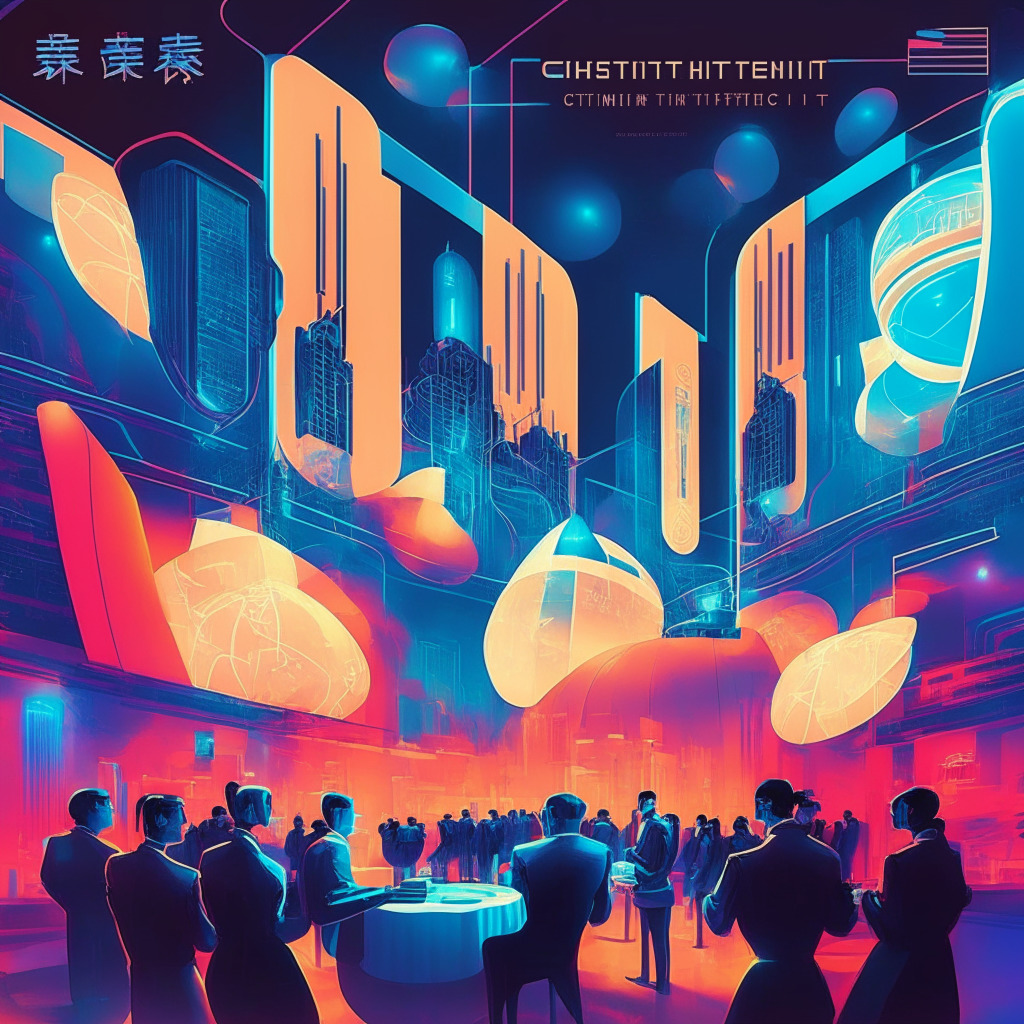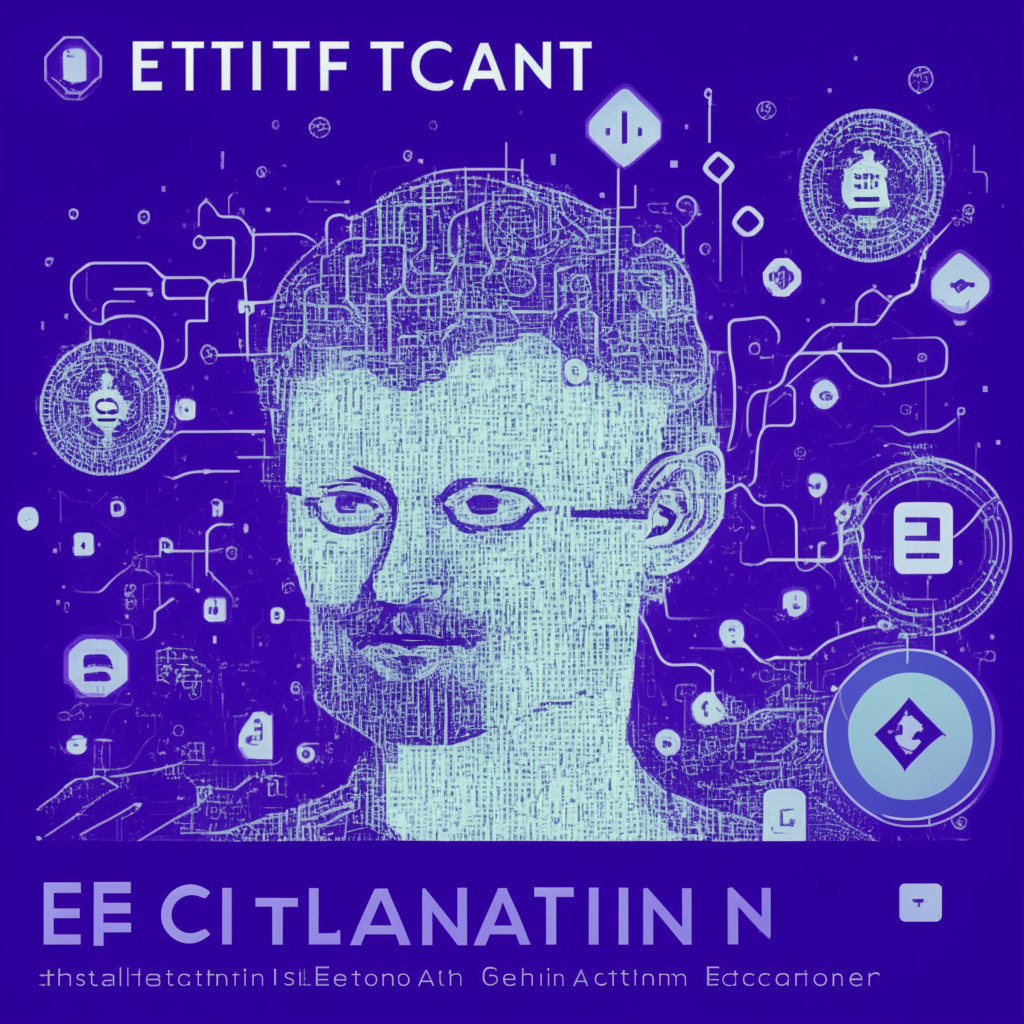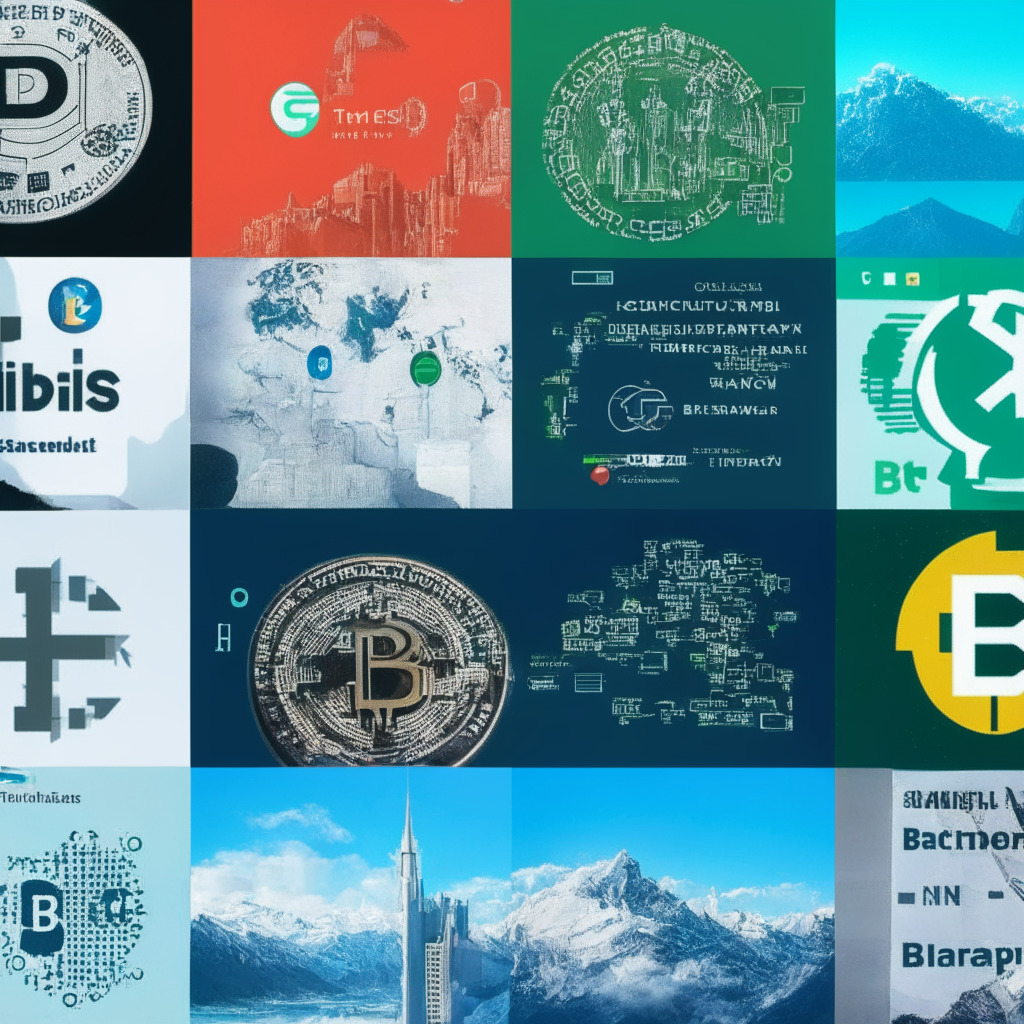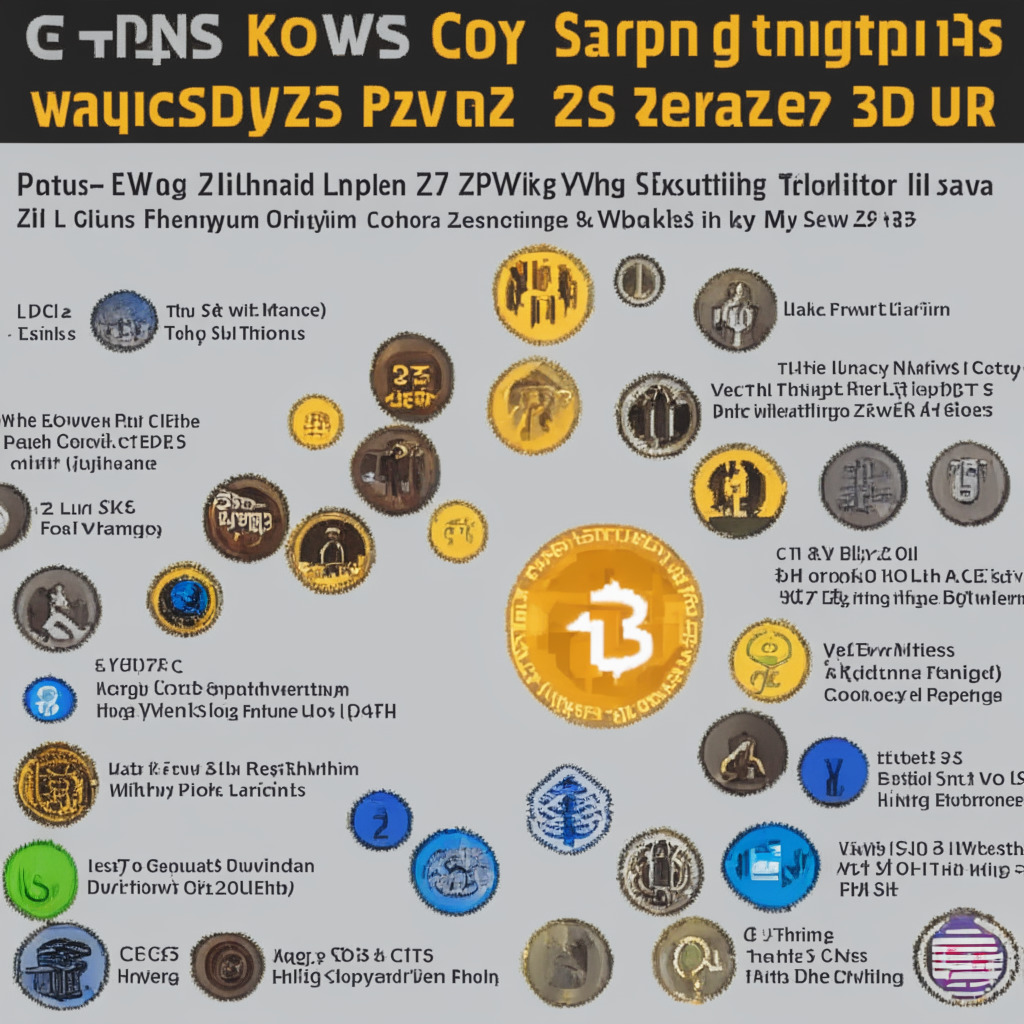“The Graph is a decentralized indexing system that simplifies the development of decentralized applications (DApps). Using a protocol and open-source APIs called “Subgraphs”, it arranges blockchain data, enhancing the speed and efficiency of data retrieval. Despite offering revolutionary prospects for data exchange, it requires staking GRT tokens, posing potential financial risks.”
Search Results for: Google Play
Crypto Market Surprise: Filecoin and Storj Outperform Bitcoin and Ether Amid Market Uncertainty
“While Bitcoin and Ether experienced dips, crypto storage tokens like Storj and Filecoin showed impressive performance, with gains of 15% and 12% respectively. Despite market uncertainties, Solana’s SOL also demonstrated a favorable rise. Nonetheless, broader landscape reflected a 1.3% decrease over the week.”
Singapore’s Web3Go: Seizing the Crypto Universe with $4M Seed Funding and AI Unison
“Singapore-based blockchain startup Web3Go raised $4 million in seed funding, largely supported by Binance Labs. The firm is preparing to launch its native asset creation platform which addresses the personalized needs of content creators in the digital universe, paving the way for the Web3.0 revolution.”
Twitter’s Rate Limitations: The Impact on Crypto Communities and the Emergence of Decentralized Alternatives
“Twitter’s decision to place severe rate limits has led to a significant limit on shared information. Reports indicate a drop of over 60% in the number of tweets indexed by Google. This change has consequences for industries, especially cryptocurrency, as Twitter is used heavily for information dispersion. Decentralized Twitter rival, Mastodon, is seeing unprecedented growth, while Twitter competitor, Threads, prepares for launch.”
Mythical Games’ $37M Funding and the Future of NFT-Powered Gaming
Mythical Games, a Web3 game studio, recently raised $37 million in a Series C1 funding round led by Scytale Digital, with participation from ARK Invest, Animoca Brands, and others. The company focuses on NFT-based games like NFL Rivals and is working on integrating more Web3 elements and educating players about tradable assets.
Amazon’s $100M Generative AI Center: Boosting Cloud Services or Raising Privacy Concerns?
Amazon’s cloud unit, AWS, invests $100 million in a generative AI center to enhance cloud infrastructure services capabilities and maintain market leadership. This move aims to bridge the gap between Amazon’s AI experts and clients seeking advanced technology applications, amidst rising competition from Microsoft and Google.
Crypto Rewards in Mobile Gaming: Exciting Future or Mere Pocket Change?
Bitcoin payments startup Zebedee has launched ZBD, a feature in its Android app that rewards players with small amounts of Bitcoin for playing over 100 eligible mobile games, due to a partnership with advertising platform Adjoe. The integration of cryptocurrency rewards showcases the potential for blockchain technology and cryptocurrency markets to become prominent in the gaming industry, while also raising questions about the long-term financial viability for players.
Fortune 500 Crypto Adoption Soars Amid Regulatory Pressure: US Losing Ground?
Over 80% of Fortune 500 companies are exploring or deploying Web3 initiatives, despite US regulatory pressure, as per a Coinbase study. The majority of these initiatives involve infrastructure development, supply chain management, data collection, and payment use cases. However, 90% of respondents believe clear rules and regulations are needed to advance adoption.
Meme Coin Rally Continues: Factors, Market Impact, and Potential Dangers
The meme coin rally continues with Pepecoin, Dogecoin, Shiba Inu, and Floki Inu experiencing double-digit increases. Factors fueling this trend include potential exchange listings and new blockchain initiatives. Despite the surge, critics argue meme coins are highly speculative and lack inherent value compared to more advanced cryptocurrencies.
Revival of Gods Unchained: Epic Games Store Launch, Mobile Expansion, and Immutable’s Future Plans
NFT game Gods Unchained is set for a revival in 2023 with its launch on the popular Epic Games Store, attracting a larger audience. Developer Immutable Games Studio plans to introduce new game modes, a major expansion pack, and expand to iOS and Android platforms to enhance user experience and accessibility.
AI Regulation Race: Balancing Innovation with Ethics as Global Powers Act on Legislation
The proposed H.R.4223 bill aims to create a federal commission on AI to develop a comprehensive regulatory strategy for AI technologies. The bipartisan bill follows the introduction of strong UK AI laws and will address potential risks, while ensuring that US technological innovation remains intact.
Improbable’s MSquared: Fueling the Future of the Metaverse or Overpromising?
Improbable’s MSquared, a metaverse creation engine, is gaining interest through its early access and open-sourcing of Metaverse Markup Language. With support from tech giants like Google, Nvidia, and Dolby, MSquared aims to promote development of novel business models and enable unique experiences within a network of metaverses.
EU AI Act: Balancing Innovation and Ethics in Artificial Intelligence Regulation
The European Parliament recently passed the EU AI Act, aiming to promote human-centric and trustworthy AI while protecting health, safety, and fundamental rights. The act restricts certain AI services and products, including biometric surveillance and predictive policing, while allowing generative AI models like OpenAI’s ChatGPT and Google’s Bard, provided they are clearly labeled. The challenge lies in balancing innovation and safety in AI development.
Binance Supports Terra Classic Upgrade: Pros, Cons, and Market Impact
Binance and other major crypto exchanges support Terra Classic’s v2.1.1 upgrade, which brings its blockchain to parity with Terra 2.0 and other Cosmos chains. Despite minor setbacks awaiting a Google Chrome extension update, the upgrade signals potential for advanced decentralized applications and a positive market sentiment for the network’s future.
China’s Role in AI Regulation: Balancing Innovation and Global Security Concerns
OpenAI CEO Sam Altman emphasizes the importance of including China in shaping AI regulations due to its wealth of AI talent. Amid growing national security concerns, international collaboration is crucial for addressing challenges posed by AI advancements, ensuring safety and fostering technological innovation.
The Battle Over Crypto Ads: Tech Giants vs European Regulators and Consumer Advocacy Groups
The European Consumer Group (BEUC) has lodged a complaint with the European Commission regarding tech giants like Meta and Alphabet, urging stricter crypto advertising policies in the EU due to concerns about potentially misleading ads on platforms like Instagram, YouTube, TikTok, and Twitter. The group seeks better protection against crypto scams and false promises.
AI-Designed Flat-Pack Sofa: Innovation vs. AGI Concerns in Furniture’s Future
The AI-designed, limited-edition flat-pack sofa by Space10 and Panter&Tourron revolutionizes furniture design, showcasing innovative, sustainable solutions. However, concerns about advanced AI systems like artificial general intelligence (AGI) demand proper regulation and striking a balance between technological advancement and precautionary measures.
Pandemic-Accelerated AI Boom: Impact on Tech Stocks and Balancing Market Optimism
Pandemic-fueled innovation in AI has catalyzed unprecedented growth in the tech industry, benefiting hardware manufacturers like NVIDIA, and software companies including Meta and Microsoft. Amid financial boons, a balance of optimism and caution is required to navigate AI’s evolving landscape and potential pitfalls.
Baidu’s AI Chatbot: Sensitivity Revolution or Censorship Strategy? Pros, Cons & Global Impact
Baidu’s latest AI chatbot claims to communicate with zero errors on sensitive topics, raising questions about its capabilities and potential censorship strategies. Striking a balance between freedom of expression and sensitivity is crucial as AI technology continues to advance.
Exploring Stepn’s Move-to-Earn Game: Apple Pay Integration and NFTs in Mobile App Marketplaces
Stepn integrates Apple Pay into its iOS app’s in-app marketplace, enabling users to purchase NFT sneakers using a novel in-app currency called Sparks. This move-to-earn game app rewards players with crypto tokens as they walk or run and aims to blend blockchain gaming with Apple’s extensive reach, potentially onboarding millions of users into the Web3 domain.
Axie Infinity Debuts on Apple App Store: Sustainable Price Rally or Short-Lived Spike?
The blockchain-based game Axie Infinity has gained attention as its native cryptocurrency, AXS, surged 12% following its debut on the Apple app store. However, with bearish indicators in the perpetual futures market, crypto enthusiasts must consider the long-term potential and sustainability of this play-to-earn project.
Crypto’s Role in Longevity: NewLimit’s Quest for Curing Aging and Blockchain Implications
NewLimit, a longevity pharma startup co-founded by Coinbase CEO Brian Armstrong, aims to extend human lifespan through epigenetic reprogramming. With $40 million raised in Series A funding, the startup explores the intersection of cryptocurrency, blockchain technology, and life sciences research, highlighting the potential convergence of these fields.
Elon Musk, OpenAI’s Dilemma, and the Battle Between Open-Source and Profit-Driven AI
Elon Musk’s OpenAI, initially open-source, faces criticism for drifting towards a closed-source, for-profit model, raising concerns about the future of AI development. The growing financial relationship with Microsoft and increasing likeness to Google’s DeepMind sparks debate on AI’s consequences and the balance between open-source ideals and for-profit motives.
LG’s Blockchain TV: Revolutionizing NFT Trading or Risky Investment? Pros & Cons Explained
South Korean tech giant LG Electronics reveals their latest patent application: a TV that allows users to buy, sell, and swap NFTs directly from their living rooms. By connecting to an NFT market server and users’ cryptocurrency wallets, LG aims to integrate NFT technology and digital art collectorship into everyday entertainment.
BlockGPT: Decentralizing AI Chatbots and Token Rewards – Boon or Bane for Blockchain?
BlockGPT, a Web3 company, aims to create a decentralized AI chatbot with a tokenized reward system. The launch introduces two tokens, BGPT and AIBGPT, built on PancakeSwap, and offers users NFTs and token prizes for engagement in chat sessions.
Account Abstraction: The Key to Onboarding the Next Billion Crypto Users?
Elisha Owusu Akyaw and Ivo Georgiev, CEO of Ambire, discussed the potential of account abstraction in increasing crypto adoption. Georgiev argues that making wallets programmable with multiple keys can offer advanced features, such as two-factor authentication, and attract a wider audience by embedding wallets on websites. This could play a crucial role in onboarding millions, if not billions, of users worldwide.
OKX Campaign Targets Coinbase: The Urgent Need for Blockchain and Web3 Overhaul
Cryptocurrency exchange OKX’s Rewrite the System campaign emphasizes the urgent need for revamping existing financial and digital systems using blockchain technology and Web3 solutions. The campaign highlights flaws like inflation, data breaches, and censorship, advocating for greater interoperability to promote digital sovereignty and seamless cross-platform transactions.
The Great AI Debate: Balancing Innovation, Risks, and Collaborative Safeguards
The meeting between U.S. Vice President Kamala Harris, President Biden’s advisors, and AI industry CEOs discussed potential risks posed by AI technology, emphasizing shared responsibility between governments and companies in risk mitigation. Topics covered transparency, safety evaluation, and protection from malicious actors. The Biden Administration allocated $140 million to National AI Research Institutes, and White House plans to release a draft policy on government usage of AI.
Crypto
This week, the crypto industry has been abuzz with developments that signal both the increasing […]
Bitcoin’s Wild Ride: Soaring Highs, Crushing Lows, and Conflicted Feelings Among Crypto Enthusiasts
Bitcoin has seen some exciting action this week, as it experienced a significant price hike […]




